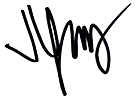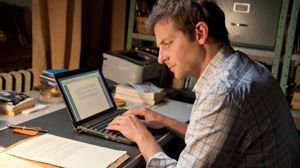You've had a hell of a career, fellas. I think it's safe to say you've contributed amply to Mr. Quaid's success; for him to be more than just a pretty face something needed to democratize his steely good-looks, and the earthy resonance you produce - both gritty and articulate, like rusty guitar strings strummed by a virtuoso - has been as vital to his charm as that squint, that grin, that loping stride.
In The Words, Mr. Quaid plays novelist Clay Hammond--but it's you, his twin layrngal mucous membranes, who really take center stage, modulating the air expelled by his lungs to form the words that narrate the film. The conceit is this: Hammond is reading a passage from his latest book in front of an adoring crowd, and the story-within-a-story follows an aspiring writer (Bradley Cooper), who, after much rejection and repudiation, discovers his salvation in a Parisian junk shop: a forgotten novel manuscript that he passes off as his own.
It's immediately evident, from the very first line you're asked to deliver - which is supposed to be the opening line of a critically-acclaimed novel, but instead sounds like something poached from a teenage girl's poetry journal - that this film doesn't take place in the real world. The Words is all conspicuous plot movement, convenient character beats, and simple sentiment--the life of a novelist as seen through the dramatic lens of As The World Turns.
I'm not saying it's your fault, guys. To be honest, you sounded a bit strained. Stretched to your physiological limits. Unnaturally vacillated. Indeed, the way the Mr. Quaid uses you, projecting a deadpan reading voice that enunciates each word as an individual phoneme, putting emphasis and accents in the strangest places, makes his voice-over feel somehow eloquent and empty at the same time. The whole film strains awkwardly for profundity in the same way.
We get the fantastical writing-the-book scene, as the committed novelist hammers at his keyboard, pauses to think, nods, and continues to hammer (am I the only one who, in the act of writing, only touches the keyboard about ten-percent of the time?). We get a scene of a drunk stumbling down a cobblestone street, humming to himself, tipping a half-empty bottle down his throat with all the subtlety of an Abbott & Costello routine. And Cooper is doe-eyed throughout, making earnest pronouncements about chasing his dreams, giving precociously humble speeches at awards ceremonies. All the swagger with which he coasted so comfortably through films like The Hangover and _Limitless _is gone; here he's the leading-man equivalent of one of those motivational posters with a mountaineer silhouetted against the sunset.
Mr. Quaid's struggles to keep you in tune wouldn't stand out so much if it weren't for the fact that you're not the only pair of vocal cords driving the narrative forward. In the story-within-a-story-within-a-story that makes up much of the second half of the film, Jeremy Irons brings his accomplished oscillating folds onto the soundtrack. He's one of the all-time masters, and I'll be honest, friends, his adductions and abductions put you to shame.
While it might not be your finest performance, you've certainly earned your paycheck (how exactly does Mr. Quaid divide his profits between you and his chin-dimple and that lock of hair that always falls perfectly over his right eye?). Take a break, relax, enjoy a cup of hot Earl Grey with a bit of honey and lemon. There wasn't much you could do. Your rough phonation is too real, too scabrous and sincere, for a film that is interested only in histrionic notions of art.
Sincerely,

Jared







